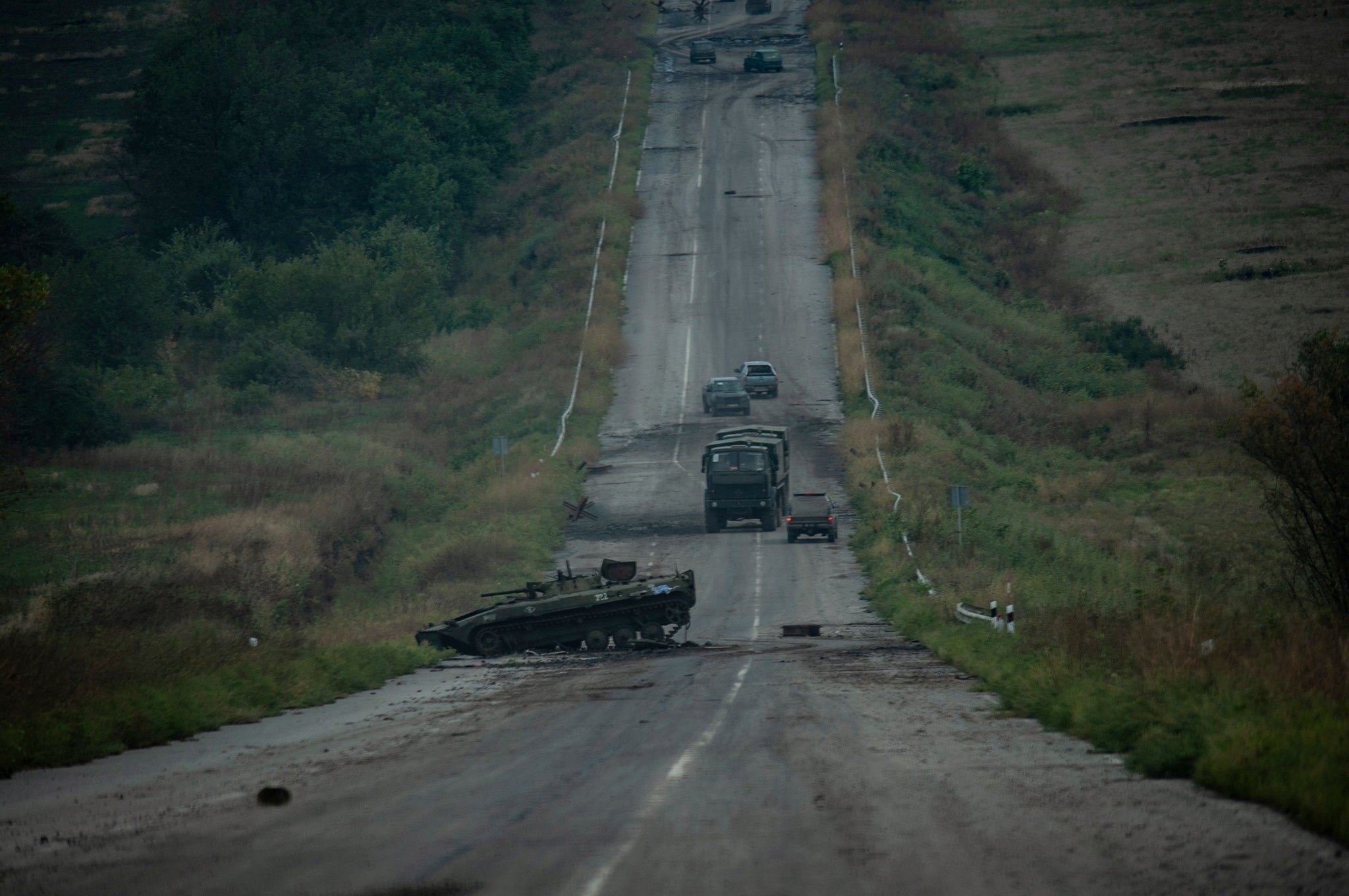British police fear weapons from Ukraine war could reach the UK and terrorists
Senior counter-terror officer says ‘large amounts of weapons’ being tracked amid international threats to Britain

British police are “working closely” to ensure that weapons from the Ukrainian war do not reach the UK and find their way into the hands of terrorists.
Metropolitan Police deputy assistant commissioner Matt Twist said the conflict was one of several “international challenges” affecting security in the UK.
Speaking at the International Security Expo in London on Tuesday, he added: “Whatever the outcome of this awful conflict, it is clear that over the medium term there will be huge amounts of weapons and ammunition in the region, which will take some time to stabilise and normalise when the phase of outright war ends.
“We will work very closely across policing and with security partners, particularly the National Crime Agency to ensure that weapons from this or any other conflict zone do not find their way to the UK.”
British counter-terror police are also leading investigations into alleged war crimes in Ukraine and taking testimonies from refugees fleeing to Britain.
Mr Twist, who heads the “protect and prepare” strand of counter-terrorism policing, said officers were also monitoring other potential impacts from the Russian invasion, adding: “World events have an impact on the streets of London and elsewhere in the UK.”
He said police had not yet seen plans to target Russian assets or people in the UK, or attempts to seek revenge for Britain’s support for Ukraine, but were “alert” to the possibility.”
“Russian aggression is not the only international challenge,” the senior officer said, warning of “ungoverned spaces” in countries including Afghanistan, Syria and Somalia,
“There is real potential for increase or potential resurgence in international terrorist groups’ ability to operate and direct or inspire attacks against the West or against our interests overseas.
“We must remain vigilant to this threat – as we know, events that may be thousands of miles away can quickly bring huge repercussions here at home.”
The main terror threat to the UK is assessed to be from what police describe as self-initiated terrorists, who are not directed by a group, using low-technology methods such as knives or vehicles.
Mr Twist said such terrorists are “difficult to detect and can be volatile”, and that the murder of Sir David Amess and Liverpool Women’s Hospital bombing last year showed that British security services cannot “cannot let our guard down”.
Of the 14 terror attacks declared by police in the UK since March 2017, 10 have been committed by jihadists, two by far-right extremists and two were motivated by an unclear ideology.
In the same period, 32 attacks have been foiled by the security services - 18 by jihadists, 12 from the extreme right-wing and two labelled as “single issue terrorism”.
Official figures show that 16 per cent of terror suspects currently arrested in the UK are under the age of 18, and the majority of child detainees are affiliated to the extreme right wing.
Mr Twist warned that online radicalisation had been amplified by the isolation seen during the Covid pandemic, adding: “What is hard is working out within that online group, and within the seemingly infinite online space, what is simply online bile, raging alone into the international digital ether, versus what could translate into a real world threat or potentially incite one.
“We are also seeing mental ill health as becoming an increasingly prominent feature in many of our cases.”
Jihadism is still assessed to be the largest terror threat to the UK, but the far right threat has been rising for several years and an increasing number of investigations now involve “individuals with weaker or even mixed ideological elements”, or whose primary aim is “extreme violence” for its own sake, Mr Twist said.
The senior officer praised the security operation around the Queen’s funeral, which was the largest of its kind, and said he was confident over preparations for the coronation of King Charles III.
He said that as part of Operation London Bridge, police provided protection packages to over 230 dignitaries and world leaders.
Mr Twist defended the use of buses to transport high-profile attendees including the Canadian prime minister and French president to the Queen’s funeral at Westminster Abbey, adding: “Despite some of the commentary on social media, the buses actually provided a highly secure means to [transport people] at scale, within an extremely complex and time critical programme.
“Simply put, it was the only way to get the numbers we needed to the church on time.”
Join our commenting forum
Join thought-provoking conversations, follow other Independent readers and see their replies
Comments


Bookmark popover
Removed from bookmarks